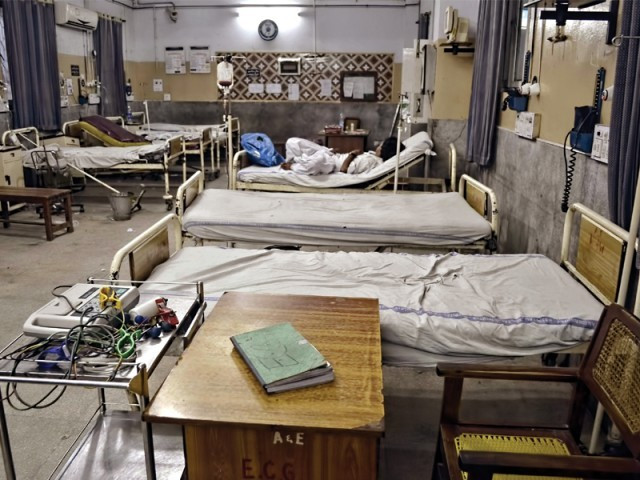Sustainable changes: In Sargodha village, hope against diarrhoea
Pilot project on hygiene and sanitation practices yields encouraging results

PHOTO: EXPRESS
A pilot project to treat the disease has been launched in Dhori village of the district, where the lack of potable water and sanitation has caused over 2,400 diarrhoea cases, resulting in the death of at least 13 children during the past six months.
The village falls under Bhalwal tehsil where a majority of the population is uneducated and the main source of their income is agriculture. Before launching the project, the organisations conducted a survey about the facilities for treatment of diarrhoea and hygiene in the village.
“Only a few people could afford to build toilets in their houses. The rest of the population, including women, defecate in the open, making way for many diseases, such as diarrhoea,” the report states. “People of the village were unaware of the concept of treating water before use. [People did not] also wash their hands after relieving themselves or before cooking. These habits lead to the spread of diseases, such as diarrhoea, that can easily be avoided.”
While talking to The Express Tribune, Reckitt Benckiser Pakistan CEO Shahzeb Mahmood said the cleanliness campaign has been launched to bring about a behavioural change through educating locals and helping them directly get involved in improving health, hygiene and sanitation practices. He added the pilot project in Dhori village Sargodha has yielded encouraging results.
Reckitt Benckiser has collaborated with Plan International for the project.
Mahmood said women from the local communities have been empowered under the project to become messengers of health and hygiene to households in the village. “They carry a basket of products which is prepared in partnership with other private companies,” he said. “It includes excellent quality products at highly subsidised rates.”
One of the women trained to be a hygienist, Mehreen, said it was very difficult to talk to people about hygiene and sanitation issues. “They wouldn’t let us come in. But gradually, through other educational activities, people started becoming aware about [cleanliness].”
Resultant disease
Diarrhoea causes death by depleting body fluids and resulting in severe dehydration. Dr Saima Shafique, a consultant at the partner NGO, told The Express Tribune the disease can also have a detrimental impact on childhood growth and cognitive development, leading to physical and mental stunting.
“Initiatives that bring about behavioural change and promote hygienic practices are the only way of reducing the incidents of diarrheal deaths. Small changes in everyday habits such as washing hands with soap and safe disposal of faecal matter can lead to sustained reduction in bacterial infections and diseases like diarrhoea.”
A recent report of the District Health, Management Information System states 25 million cases of diarrhoea among children in Pakistan are reported every year, with 53,300 child deaths annually.
Published in The Express Tribune, October 30th, 2016.



















COMMENTS
Comments are moderated and generally will be posted if they are on-topic and not abusive.
For more information, please see our Comments FAQ